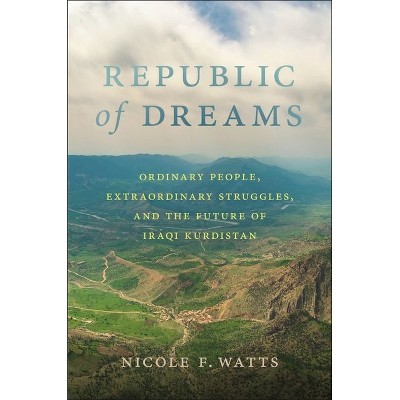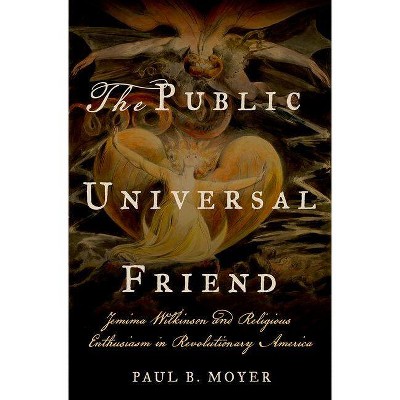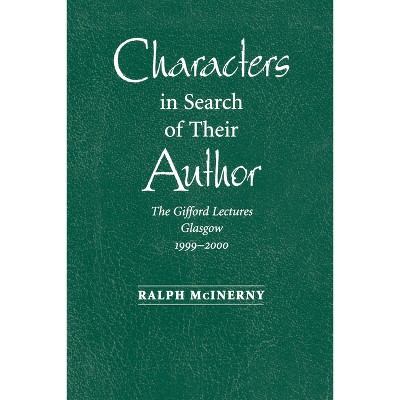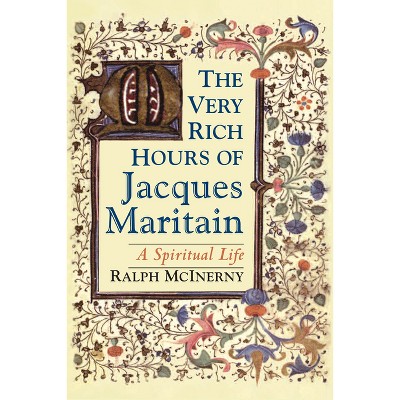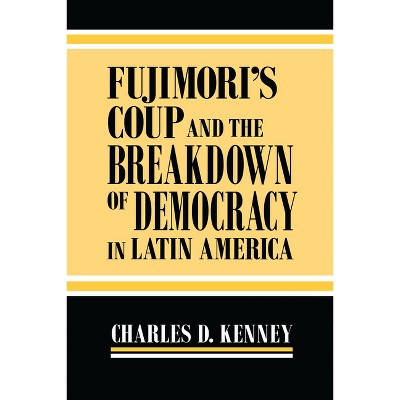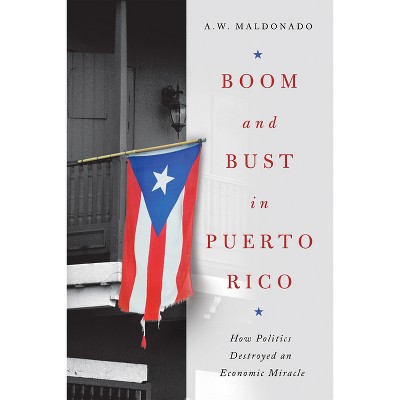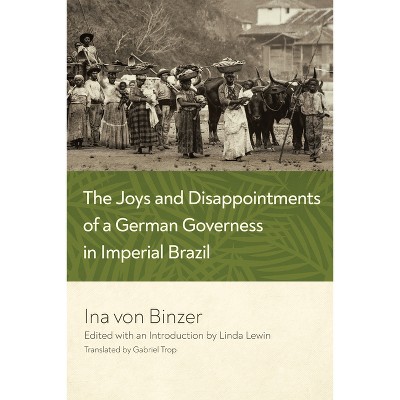Sponsored

After Insurgency - by Ralph Sprenkels (Hardcover)
In Stock
Sponsored
About this item
Highlights
- El Salvador's 2009 presidential elections marked a historical feat: Frente Farabundo Martí para la Liberación Nacional (FMLN) became the first former Latin American guerrilla movement to win the ballot after failing to take power by means of armed struggle.
- About the Author: Ralph Sprenkels is lecturer in conflict studies at Utrecht University.
- 484 Pages
- History, Latin America
Description
About the Book
After Insurgency documents the development of El Salvador's Frente Farabundo Marti para la Liberacion Nacional guerrilla movement from armed insurgency to a competitive political party.
Book Synopsis
El Salvador's 2009 presidential elections marked a historical feat: Frente Farabundo Martí para la Liberación Nacional (FMLN) became the first former Latin American guerrilla movement to win the ballot after failing to take power by means of armed struggle. In 2014, former comandante Salvador Sánchez Cerén became the country's second FMLN president. After Insurgency focuses on the development of El Salvador's FMLN from armed insurgency to a competitive political party. At the end of the war in 1992, the historical ties between insurgent veterans enabled the FMLN to reconvert into a relatively effective electoral machine. However, these same ties also fueled factional dispute and clientelism. Drawing on in-depth ethnographic fieldwork, Ralph Sprenkels examines El Salvador's revolutionary movement as a social field, developing an innovative theoretical and methodological approach to the study of insurgent movements in general and their aftermath in particular, while weaving in the personal stories of former revolutionaries with a larger historical study of the civil war and of the transformation process of wartime forces into postwar political contenders. This allows Sprenkels to shed new light on insurgency's persistent legacies, both for those involved as well as for Salvadoran politics at large. In documenting the shift from armed struggle to electoral politics, the book adds to ongoing debates about contemporary Latin America politics, the "pink tide," and post-neoliberal electoralism. It also charts new avenues in the study of insurgency and its aftermath.
Review Quotes
"Sprenkels has provided a very useful framework for what postinsurgencies can and cannot accomplish for the people they represent." --Latin American Politics and Society
"After Insurgency offers a brilliant analysis of the postwar trajectory of El Salvador's guerrilla force, one of the strongest such movements in Latin American history. Ralph Sprenkels, himself a participant in Central American struggles, balances attention to on-the-ground, lived experience of peasant rebels after peace accords with an examination of the rise of electoral clientelism and institutional genealogies among the former revolutionaries. In a major contribution to the study of post-Cold War political imaginaries, he goes beyond the trope of disillusionment to probe how relations among leaders and grassroots activists transformed over time, eventually rising to political power--at a price." --Ellen Moodie, University of Illinois at Urbana-Champaign
"After Insurgency: Revolution and Electoral Politics in El Salvador reflects a deep and unprecedented access to sources, largely interviews and observations of organizations, but also documentary materials, made available because of Ralph Sprenkels's long personal history of involvement with the organizations and people under examination. No studies of comparable richness exist for El Salvador, and I have yet to read anything on any of the other insurgencies or postinsurgencies in Latin America that equals it." --Erik Ching, Furman University
"By highlighting the often overlooked aspects concerning former guerilla transformation, the book not only contributes to research on El Salvador's postwar developments and democratic transition but also to research on insurgency, especially the understudied field of post-insurgency." --Democratization
"Ralph Sprenkels's book is a foundational contribution to understanding the postwar period in El Salvador. It combines innovative and insightful political ethnographic methods with deep and precise knowledge of the dynamics among the five groups that made up the now-ruling FMLN. The author offers us the story of what happened to the rank and file that participated in the revolutionary forces, of the forgotten ones who did not rise to power, and of their struggles to survive in a postwar environment for which they were ill-prepared. The research by Sprenkels is key to understanding the dramatic situation of violence and poverty that this Central American country continues to experience." --Horacio Castellanos Moya, author of Senselessness and The Dream of My Return
"El Salvador is a source of immense learning about violence, war, and post war politics. This book captures some of the most important themes for scholars as well as peace and development practitioners. It does so through outstanding attention to methodology and sources, and a capacity for critical reflection alongside a deep personal engagement with the post war realities of the country. This is a very significant contribution to our understanding of insurgent and postinsurgent politics." --Jenny Pearce, London School of Economics
"Ralph Sprenkels has produced a seminal book on the 'afterlife' of revolutions. Based on his outstanding research and long commitment with the FMLN, this study is an honest and impartial account about personal fortunes and misfortunes of combatants and loyalists, and the transformation of revolutionary devotion in political routine." --Dirk Kruijt, author of Guerrillas: War and Peace in Central America
"Sprenkels, who aided the guerrilla forces during the war, used his grass-roots contacts to conduct revealing interviews with wartime combatants. The book gives a nuanced, humane assessment of the lives of former revolutionaries in peacetime." --Foreign Affairs
"Uniquely placed to investigate and analyze the social and political developments that followed the Salvadoran civil war, Ralph Sprenkels offers multiple perspectives in After Insurgency. He provides fascinating in-depth case studies, including the post-war development of a repopulated village, a longitudinal ethnography highlighting the lives of individual former guerrillas, and an analysis of the role of their veterans' organizations, which result in a richly detailed tapestry of a complex legacy. This remarkable study will be a rewarding read, not only for scholars of Latin America, but also for those concerned more generally with revolutionary movements, identity politics, and postwar political transitions." --Margaret E. Ward, author of Missing Mila, Finding Family: An International Adoption in the Shadow of the Salvadoran Civil War
About the Author
Ralph Sprenkels is lecturer in conflict studies at Utrecht University. He is the author and editor of a number of books, including Stories Never to Be Forgotten: Eyewitness Accounts from the Salvadoran Civil War.

